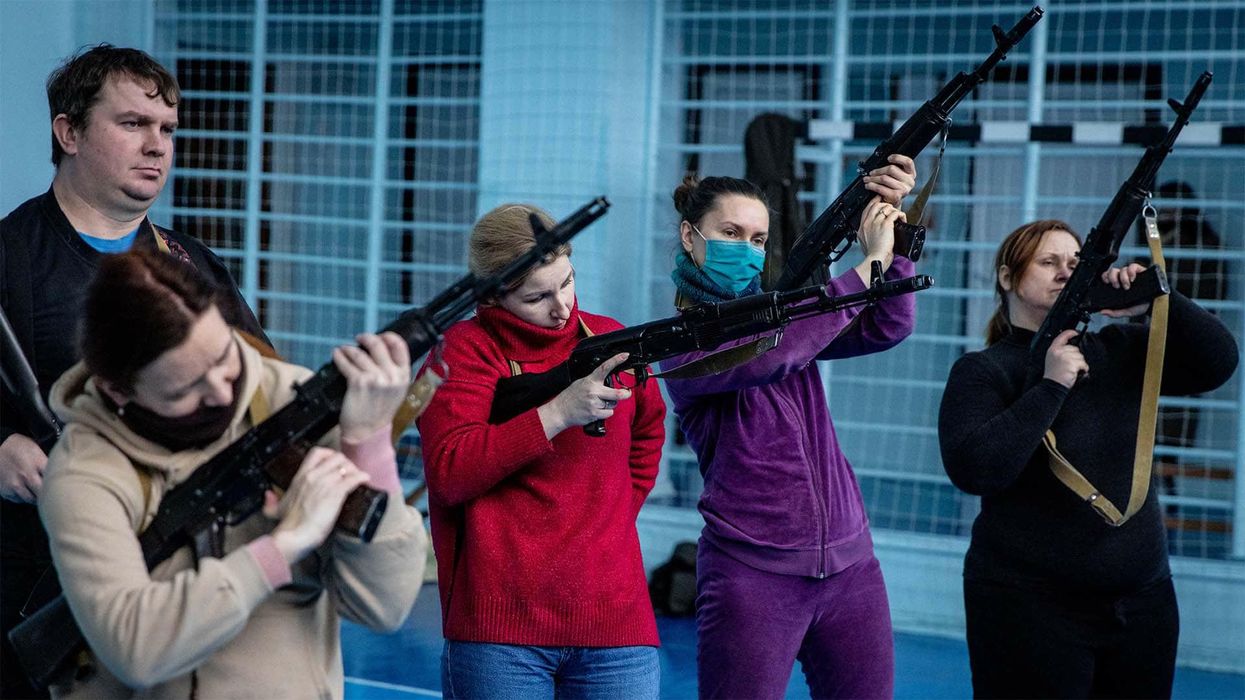With tensions high, the Ukraine-Russia crisis is becoming a rising global issue.
Russian leader Vladimir Putin stationed around 130,000 troops along the border with Ukraine this winter to try and intimidate Ukraine.
Naturally, this increased suspicion that an invasion was imminent.
@get_makes_content Visit TikTok to discover videos!
Sign up to our free Indy100 weekly newsletter
Today, Ukraine has called for a meeting with Russia and other members of a key European security group over the conflict and Europe is the closest it's been to war for 70 years, according to Britain's armed forces minister James Heappey.
How did we get here? Here is everything we know in three simple breakdowns:
How did it start?
Let's go back eight years in 2014. Ukraine's last pro-Russia leader was overthrown by mass protests which prompted Russia to seize Crimea, a territory of Ukraine. They also backed a rebellion led by pro-Russia separatists in the eastern Donbas region, which led to 14,000 deaths.
Ukraine and the West accused Russia of sending troops and weapons back to the rebels – claims which Moscow has denied.
France and Germany implemented a 2015 peace accord to help end the large-scale battles. Among the 13-point agreement, Ukraine would regain complete control of its border with Russia in the rebel-held territories.
However, Moscow continued to deny involvement in the conflict and argued they were not bound by the terms.
In December 2021, US intelligence officials unveiled that Russia was planning on sending troops near Ukraine's border in preparation for a possible invasion. Kiev had complained in December that Moscow had deployed over 90,000 troops near the two countries' border, warning that "large scale escalation" was possible in January.
Moscow has repeatedly denied the presence of its troops in eastern Ukraine.
What now?
Moscow continues to deny plans of invading Ukraine, while Western leaders insist that it could be imminent. Hopes are low for a breakthrough in diplomacy as each side anticipates the other's next move.
Leaders are trying to defuse escalating tensions.
Boris Johnson is expected to hold a crisis talk with world leaders to bring Russia "back from the brink" of war.
Ukrainian president Volodymyr Zelensky has invited Joe Biden to visit Kiev to show solidarity.
German chancellor Olaf Scholz will meet Zelensky in Kiev before heading to Moscow on Tuesday to meet Vladimir Putin.
What have people said?
US president Joe Biden urged Americans to leave Ukraine now. "American citizens should leave now," he told NBC News.
"We're dealing with one of the largest armies in the world. It's a very different situation and things could go crazy quickly."
This comes as extra rescue flights have been added from the capital. A statement issued from the AirBaltic headquarters at Riga airport read: "To address the significant passenger demand for flights from Kiev, Ukraine to Riga, Latvia, AirBaltic has scheduled two additional flights."
Johnson is receiving daily intelligence briefings from security chiefs and working with allies to provide further defensive and economic support to Kiev, with an announcement touted for the coming days.
A spokesperson for Downing Street said: "The Prime Minister will continue to work tirelessly alongside our allies to get Russia to step back from the brink."
Armed Forces Minister James Heappey warned there might not be time for them to flee Ukraine if they wait until the fighting starts.
"This is a warning because minutes after Putin gives the order, missiles and bombs could be landing on Ukrainian cities, and that means British citizens should leave now whilst they have the opportunities to do "so," he told Sky News.
Have your say in our news democracy. Click the upvote icon at the top of the page to help raise this article through the indy100 rankings.














